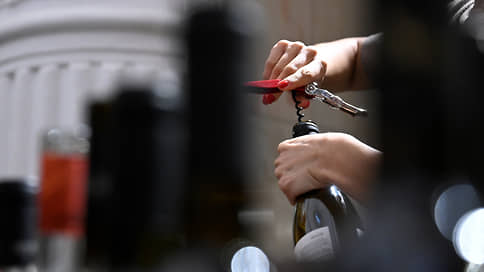Distributors shared the booze
[ad_1]

As expected, local importers benefited from the decrease in activity in the Russian market of global alcohol suppliers. Thus, Beluga Group has become the leader in the import of strong alcohol to the Russian Federation over the year, overtaking Pernod Ricard. Luding Group, X5 Group and Ladoga also managed to increase deliveries. This year, the conjuncture will be influenced by the parallel import of alcohol allowed last November, which may affect the share of market participants.
From the data available to Kommersant, it follows that the Beluga Group imported 8.98 million liters of strong alcohol into the Russian Federation in 2022, which is 2% less year on year. However, this did not prevent the company from becoming the largest importer of strong alcohol in Russia by the end of the year. This was also facilitated by a 50% year-on-year reduction in supplies to 6.95 million liters from Pernod Ricard Rouss (Ararat, Chivas Regal, Jameson, Absolut), which in previous periods ranked first in terms of imports. Now the company is second in this indicator. The third was the Luding Group, which imported 4.87 million liters of spirits against 4.83 million liters a year earlier.
At the same time, in general, the import of strong alcohol in the Russian Federation, excluding supplies from the EAEU countries, in 2022 decreased by 36% year-on-year, to 62.46 million liters. Import became more complicated with the outbreak of hostilities in Ukraine and a new wave of sanctions. Thus, the United States completely banned the shipment of alcohol to the Russian Federation, and the EU – alcohol more than €300 per unit. Deliveries were also suspended by individual foreign manufacturers.
Diageo (Bell’s, Johnnie Walker, Captain Morgan, Baileys), which left the Russian Federation, and distributor Maxxium Russia, which previously belonged to Beam Suntory (Jim Beam) and Edrington (Macallan), dropped out of the top three importers of strong alcohol, and in 2022 was sold to local management . According to data available to Kommersant, Diageo and Maxxium Russia in 2022 reduced the import of strong alcohol into the Russian Federation by 80% and 76%, to 2.47 million liters and 2.6 million liters, respectively.
The Russian company Bacardi (Dewar’s, William Lawson’s) took fourth place in terms of imports of strong alcohol, reducing supplies by 40% to 4.59 million liters. And the Campari Group division (Bisquit cognac, Trois Rivieres rum) increased imports of spirits by 7%, to 2.86 million liters year-on-year. Beluga Group, Pernod Ricard, Diageo, Maxxium Russia, Bacardi and Campari did not provide comments.
Alexander Stavtsev, head of the WineRetail information center, notes that the Beluga Group has a significant supply volume provided by the Spanish Torres with an assortment of brandy. Beluga Group reported that among imported brands, the largest sales growth in 2022 was shown by Barcelo, Plantation rums and Noy cognac. Luding Group Marketing Director Andrey Ushakov says that in 2022, the imports of Armagnac, British and Irish whiskey, tequila, chacha and calvados grew at the fastest pace.
X5 Group, which has become the largest importer of wine (the Pyaterochka and Perekrestok networks), according to Kommersant’s data, increased the import of spirits by 115% in 2022, to 3.61 million liters year-on-year. At Ladoga, the import of strong liquor increased by 34%, to 1.5 million liters, while at Rust, it decreased by 84%, to 825.6 thousand liters. In X5, the results are explained by the expansion of the range, geography and improvement in the efficiency of direct imports. Whiskey, rum, French cognac and Armenian drinks have become drivers for Ladoga due to the departure of big brands, says company president Veniamin Grabar. Rust Group of Companies explained that in 2022 they focused on the development of the portfolio of Italian sparkling wines Gancia, built new chains for the supply of Jagermeister and launched their products.
As Alexander Stavtsev notes, the results of 2022 do not reflect the effect of parallel imports, since it was launched for alcohol only last November, but in the future these volumes may affect the shares of players. AST CEO Leonid Rafailov clarifies that retailers carry a large volume of parallel imports, new importers appear, the composition of supplying countries is changing. So, he says, the import of whiskey from Bulgaria, Slovakia, and the Czech Republic has noticeably increased. Veniamin Grabar notes that the import of strong alcohol in 2023 will depend on the expansion or reduction of the list of brands available for parallel import and the logistics factor.
[ad_2]
Source link





